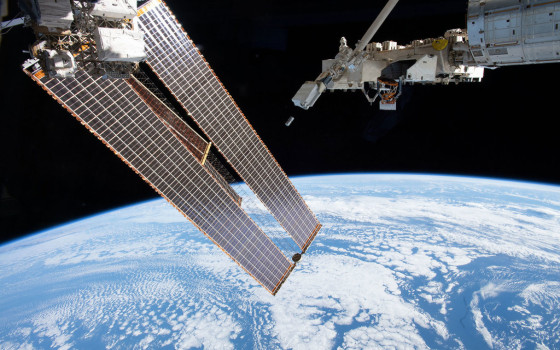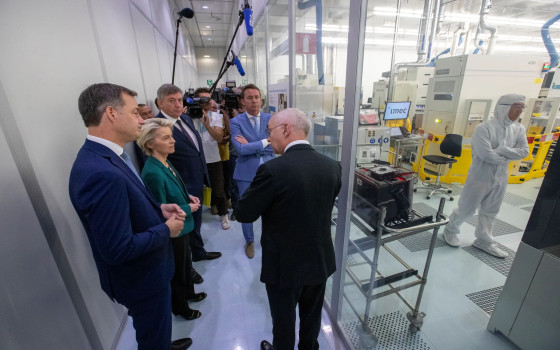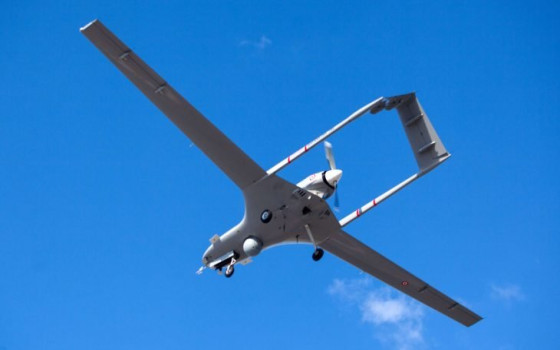
United Nations: Space Exploration Unlocks Limitless Possibilities for Humanity and a Field That Compels Nations to Cooperate and Establish Frameworks for Growing into a Multi-Planetary Civilization

- Europe and Arabs
- Thursday , 6 November 2025 10:28 AM GMT
New York: Europe and the Arabs
Space exploration can unlock "limitless possibilities" for humanity, and it is a field that compels nations to cooperate, as emphasized by the newly appointed UN Space Advocate. He is broadcaster and astrophysicist Professor Brian Cox, who was chosen as a Space Advocate by the United Nations Office for Outer Space Affairs at the end of October 2025.
Cox told UN News that he will use his new role to explain the importance and wonder of space to the widest possible audience. Adding in an interview with UN News, he said, “I’ve been interested in astronomy since childhood. I witnessed the Apollo 11 moon landing, although I was only about a year old, so I don’t really remember it. More importantly, space is one of the key growth areas of the global economy. The numbers are staggering: the space economy is projected to reach around $2 trillion by 2035, up from about $600-700 billion today. Beyond the economic impact of space, it has always been an endeavor that brings people together. The International Space Station is one area where we collaborate because we want to. But also because we have to. Space, as is clear, is not the domain of any one country. It’s an area where we can expand, with limitless potential, but it also compels us to cooperate.”
Q: The idea of cooperation is very important. Is this one of the reasons you want to work with the UN?
A: For me, some endeavors require a global perspective. Space, as is clear, is one of them. It doesn’t make sense to talk about planetary defense, lunar exploration, and mining. Asteroids, then moving into the solar system as individual nations. That's simply not viable.
There are certain areas where global cooperation is imperative. And I think that's a good thing, because it forces us to do difficult things, engage in complex diplomacy, and conduct technical negotiations.
Some might see this as a drawback, but I see it as a major advantage of space, as it forces us to think as one world.
Q: And what difference do you think you can personally make in this new role?
A: It's essential that we expand our scope, our economy, and our ambition in space. My background, besides being a storyteller, is in trying to understand and explain why space is so important and wonderful to the widest possible audience. And by the way, that audience isn't just the general public, but also includes political and industry leaders who might not realize the potential of space.
Science is one of the cornerstones of our civilization, and therefore, if its benefits aren't demonstrated to people, they won't be able to participate in advancing and growing our civilization.
If there's a lack of understanding, the decision-making process is unlikely to be ideal. If this sounds a bit dry... The thing is, we also ask fundamental questions like: Are we alone in the universe?
Q: I think that's the question you get asked most often?
A: It's a great question. I think we all wonder about it. And the answer is, we don't know.
You could phrase the question more scientifically. How far beyond Earth do we need to go to discover life? Currently, we don't know the answer to that question, but we're trying to answer it.
Q: Are there any misconceptions about space that you'd like to address?
A: There are definitely misconceptions about space, which I think stem from a lack of information.
The main misconception is that space is a luxury, and that exploring and manufacturing in near-Earth orbit initially, and then moving to the Moon and asteroids, is something we can postpone for the future.
I often hear it said that we should solve the problems here on Earth before we worry about space.
The answer to that is that space is actually a vital component in solving the problems we face on Earth. A clear example of this is understanding how our climate is changing.
Data from satellite observations of the atmosphere and ocean temperatures is a component Space is vital to our understanding of climate change and to managing the problems we face now, problems we created in the pre-space age.
Global positioning and satellite navigation are crucial, not just for locating you on your phone, but also for managing air traffic, supply chains, and improving how goods and materials are shipped across the planet.
There are numerous examples of how space is already positively impacting Earth, and these examples will only grow rapidly in the future.
Q: How do you plan to advocate for the peaceful and inclusive use of outer space, particularly in terms of involving developing countries?
A: I hope to contribute to the democratization of space and advocate for participation, not just among major players.
The arguments for the right of all nations to participate in the space economy are the same arguments for the right of nations to participate in the land-based and ocean-based economy.
The fundamental point is that we must operate in specific areas as one planet. Space is a prime example, but climate change, combating pandemics, and managing artificial intelligence can be added to this list.
These issues transcend national borders, which is why we need organizations like the United Nations. United Nations.
Perhaps space is the clearest example of an area, a part of our economy, that is not bound by national borders, because there clearly are no national borders there.
Q: In your opinion, how can developing countries participate more in the space economy?
A: I think we are now in a transitional phase in terms of going beyond Earth, towards using and exploiting space industrially. This means that the regulations we all agree on are now being developed.
How do we manage air traffic in space? How do we ensure equitable access? If we start building bases on the Moon, how do we manage that? This is a global dialogue. It affects everyone, and all countries need to work together to establish the frameworks that will allow us to grow into a multi-planetary civilization. I would love to see us become an interstellar civilization, but I won't see it in my lifetime.












No Comments Found